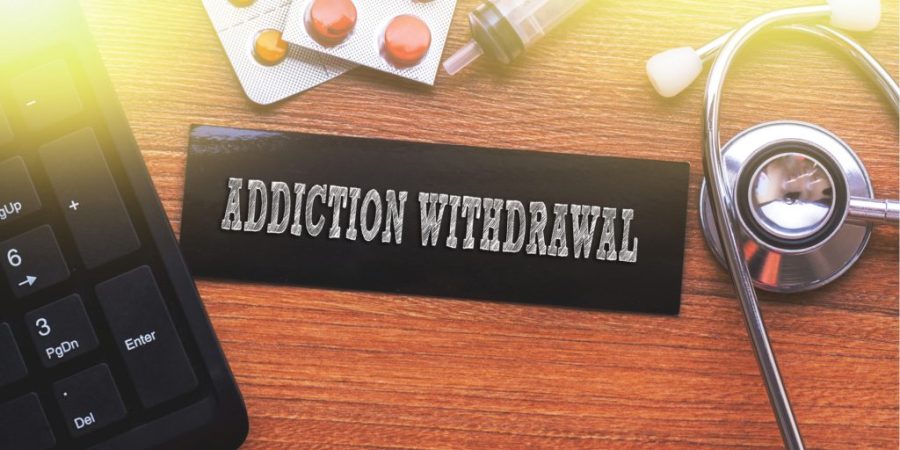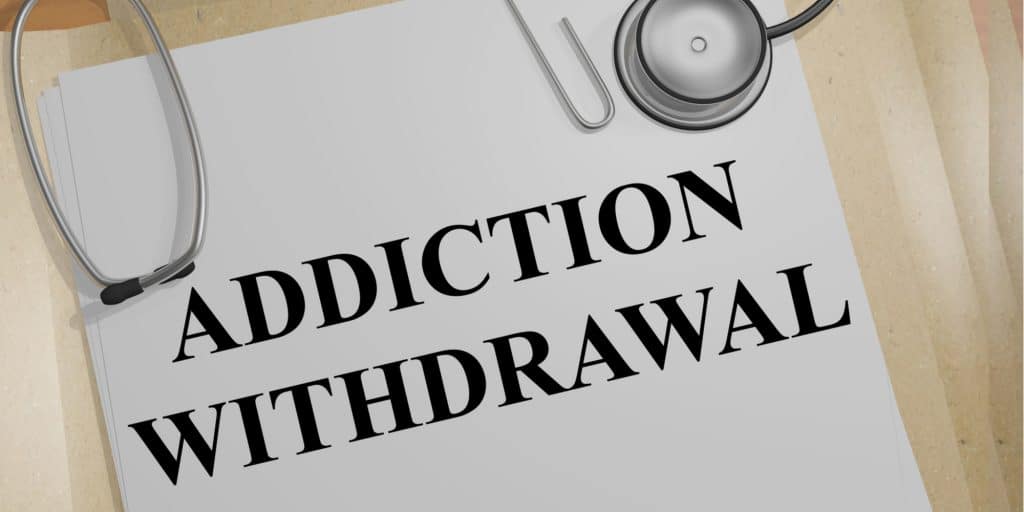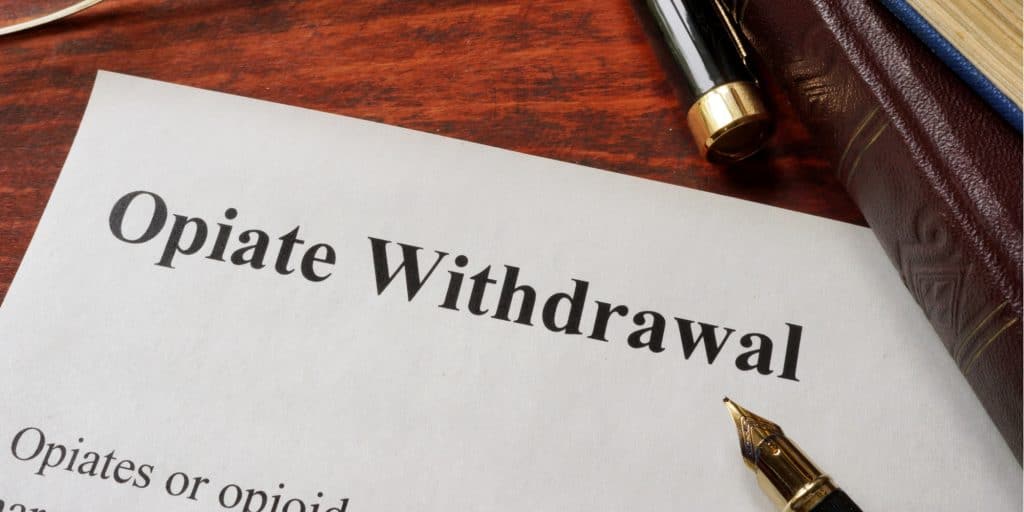
When you’re considering starting rehab, it’s normal to have a lot of questions. What kind of detox do I need? How long does withdrawal last? And without answers, it can feel like there’s no safe way to move forward.
How long withdrawal lasts can depend on many factors. Obviously the substance you’re detoxing from is important, but there are other, more personal factors. How long and how much you’ve been using play a major role. And your age, gender, and overall state of health are also factors to consider.
In this article, you’ll learn what causes withdrawal symptoms and get an overview of the timelines and symptoms for alcohol, opioid, and stimulant withdrawal.
Table of Contents
What Causes Drug and Alcohol Withdrawals?


Before you learn about withdrawal symptoms and timelines, it’s helpful to understand why withdrawal happens in the first place. Knowing what’s happening in your body can help you make preparations for your own detox.
To understand withdrawal, you need to know about a concept called homeostasis. Homeostasis is a state of balance that all biological life, when healthy, can maintain. It’s when the neurotransmitters in your brain, your hormones, and other functions all work together to achieve a balanced, healthy state.
In the short term, using drugs or alcohol takes your body out of homeostasis by disrupting certain functions. But when you use these substances for long enough, your body starts to adapt. It reaches a new homeostasis—one that requires drugs or alcohol to maintain itself.
Once drugs or alcohol become a part of your body’s normal state, quitting throws off the balance yet again. In an attempt to function in a new, unfamiliar way, your body can overcorrect and cause withdrawal symptoms. That’s part of why it’s so easy to relapse when you’re going through withdrawal—your body literally doesn’t know how to function on its own anymore. Once you reintroduce the drug into your system, you return to homeostasis and the symptoms disappear.
Thankfully, it is possible for your boy to function normally without drugs or alcohol. After a few days or weeks without relapse, your body starts to regain its sense of balance. Withdrawal symptoms start to fade, and you can start to function normally.
Now that you understand the mechanism behind alcohol and drug withdrawals, there’s just one question left to ask: How long does withdrawal last?
Alcohol Withdrawal Timeline and Symptoms
Alcohol detox and withdrawal can be divided into three different stages, each with different levels of intensity. The first stage, which feels similar to being hungover, can start anywhere from six hours to a day after your last drink. Stage one symptoms include:
- Shaking or tremors
- Headaches
- Body aches
- Dizziness
- Upset stomach
- Vomiting
- Loss of appetite
For most people, these stage one symptoms last for one or two days. For people with more severe alcohol use disorder, intense stage two symptoms may occur. These symptoms often start after one or two days and can last up to a week:
- Anxiety
- Fever
- Mood changes
- Changes in sleep patterns
- Irritability
- Confusion
- Mood changes
- Seizures
Stage two symptoms can be dangerous or even deadly. That’s why people with heavy alcohol use disorder should never try to quit cold turkey or without medical supervision. And sadly, it can get even worse.
In very rare cases, people can experience stage three withdrawal, also known as delirium tremens, or DTs. DTs involve even more intense stage two symptoms like fever, seizures, confusion, and hallucinations. People experiencing DTs often struggle to understand where they are or what’s happening to them, which can be particularly dangerous if they are not supervised by medical professionals.
It’s important to know that there is no set length of time that withdrawals can last, since they largely depend on the substance one is detoxing from. So with that in mind, how long does opioid withdrawal last?
Opioid Withdrawal Timeline and Symptoms


Opioid misuse is one of the greatest challenges in America today. According to the Department of Health and Human Services, over 10 million people in the US misused prescription opioids in 2018 alone. Since opioid withdrawal can be extremely uncomfortable, people find it very hard to quit on their own.
Since opioids are a type of depressant, withdrawal symptoms result from increased activity in your nervous system. Short-term opioid withdrawal symptoms include:
- Stomach cramps
- Vomiting
- Diarrhea
- Sweating
- Chills
- Trouble sleeping
- Muscle pain
- Joint pain
- Feeling unhappy
- Anxiety
Short-term withdrawal symptoms can start as soon as six hours after your last dose and continue for up to five days. Exactly how long they last can vary from person to person. How long you’ve been using, your metabolism, and your overall health can all affect how long your withdrawal phase will last. Although opioid withdrawals are rarely deadly, seeking professional care can still greatly reduce your risk of relapsing due to uncomfortable opioid withdrawal symptoms.
Stimulant Withdrawal Timeline and Symptoms
Stimulants are drugs that cause heightened activity in your nervous system. They include illegal drugs like cocaine, ecstasy, and methamphetamine. There are also prescription stimulants like Adderall, Ritalin, and Vyvanse. While not as common as opioid misuse, up to five million Americans report misusing prescriptions stimulants.
For most people, withdrawal symptoms start about four hours after the last dose. The most intense symptoms can continue for up to a week, while milder symptoms may last up to two weeks. Stimulant withdrawal symptoms include:
- Anxiety
- Depression
- Chills
- Dehydration
- Paranoia
- Cravings
- Increase in appetite
- Mood changes
- Body aches
- Insomnia
Post-Acute Withdrawal Syndrome (PAWS)
While the short-term withdrawal symptoms from stimulants, opioids, and alcohol mostly stop after one to two weeks, you might experience more long-term symptoms. These symptoms are more mental than physical in nature and are called post-acute withdrawal syndrome, or PAWS.
PAWS symptoms usually start soon after your short-term withdrawal symptoms stop. PAWS symptoms include:
- Irritability
- Depression
- Anxiety
- Sudden mood changes
- Low energy
- Trouble sleeping
- Brain fog
- Sexual dysfunctions
- Cravings
PAWS symptoms can be very different from person to person. Some might find them only mildly irritating and that they last for just a few months. Others may have nagging symptoms that last for years. How severe PAWS symptoms are depends on a person’s history of substance use as well as other health factors.
Since PAWs can last for longer than most detox programs, it’s important to enroll in follow-up care, such as a drug or alcohol addiction treatment program. In this way, you can continue to get support while also working on addressing the mental side of addiction and developing new, healthy coping skills.
How to Safely Navigate Withdrawal Symptoms in Orlando, Florida
Withdrawal symptoms are some of the biggest hurdles people face when trying to beat a drug or alcohol addiction. Knowing what to expect can help you prepare for and better face the withdrawal period. However, having a helping hand for every step of the journey is the best way to quit successfully.
At The Blackberry Center, we understand that everyone has their own unique path to recovery. This is perhaps best exemplified by the fact that there is no simple answer to the question “How long does withdrawal last?” But with personalized, unique care, anyone can manage their withdrawal symptoms. And that’s what we’ll help you with.
Beginning with our medical detox program, individuals can overcome withdrawal symptoms with 24/7 medical support. From there, we offer a variety of addiction rehabilitation programs where you can continue to heal from substance abuse and work on building your new life.
Facing a drug or alcohol addiction doesn’t have to be something you do alone; we are ready to help you. Learn more about our recovery programs by calling one of our supportive admissions specialists at 888-512-9802. Or if you’d prefer, you can ask your questions online. Given how long withdrawals last, it’s best to seek supportive, expert care during this vulnerable time.
The post How Long Does Withdrawal Last? Alcohol, Opioid, and Stimulant Withdrawal Phases appeared first on The Blackberry Center of Central Florida.
Source
Original Author: The Blackberry Center

